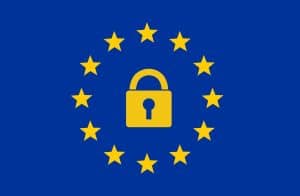Introduction
The modern digital world provides us with countless benefits, but it also presents unprecedented challenges in terms of privacy and data protection. One key development in this field is the concept of the “right to be forgotten,” recognized and implemented in the European Union (EU), allowing citizens to request the removal of outdated or irrelevant personal information from the Internet. But what happens in countries where this right is not formally recognized? Is there any solution to safeguard digital privacy? This article will thoroughly explore these issues.
Tabla de contenidos
The Right to be Forgotten: Origins and development in the European Union
The right to be forgotten has its roots in various European principles, including personal dignity, privacy, and the protection of personal data. The right to be forgotten has its roots in various European principles, including personal dignity, privacy, and the protection of personal data. It was the Court of Justice of the European Union (CJEU) that, in its May 2014 ruling (Google Spain case), established an important legal precedent by recognizing this right in the digital realm.
In 2018, the introduction of the General Data Protection Regulation (GDPR) further strengthened the right to be forgotten. According to the GDPR, companies and organizations are obligated to erase personal data when requested by an individual and specific conditions are met.
Exercising the Right to be Forgotten in the European Union

To exercise this right, the individual must submit a formal request to the entity (such as a website, search engine, etc.) hosting the personal information. If the entity fails to take action, the person can escalate the case to the national data protection authority.
However, it is crucial to understand that the right to be forgotten is not absolute. It does not apply if the information is necessary for the exercise of freedom of expression and information, is of public interest, is related to a legal obligation, or is necessary for scientific, historical, or statistical research purposes.
Legal Data Protection Structure Outside the EU
In other parts of the world, data protection laws can vary significantly. Some countries have data protection laws similar to the GDPR, although they may not explicitly recognize the right to be forgotten, as is the case with the DMCA law in the United States. In other countries, privacy and defamation laws may provide some level of data protection, but this is often limited.
Solutions in Countries without the Right to be Forgotten
While the right to be forgotten may not be formally recognized in all countries, there are various strategies and solutions that can help individuals protect their online privacy.
One option is online reputation management, which involves controlling and improving how a person appears on the Internet. Online reputation management companies can assist individuals in managing their online presence and removing or reducing the visibility of negative or unwanted information. Additionally, existing privacy and defamation laws can also be utilized. If the information posted online is false or defamatory, it may be possible to take legal action against the source of the information.
Lastly, a proactive approach might be the most effective. Individuals should be cautious about the information they share online, use effective privacy settings, and be aware of how and where their personal data is shared.
Conclusion
The right to be forgotten, recognized and enforced in the European Union, is a valuable tool for protecting privacy and personal data in the digital world. In countries where this right isn’t formally recognized, various existing solutions, from online reputation management to legal actions and proactive prevention, can help individuals safeguard their digital privacy.
Photos, videos, negative reviews, or fake news can impact your image. We help you remove or deindex them. Leave your details and we’ll contact you.
Photos, videos, negative reviews, or fake news can impact your image. We help you remove or deindex them. Leave your details and we’ll contact you.








